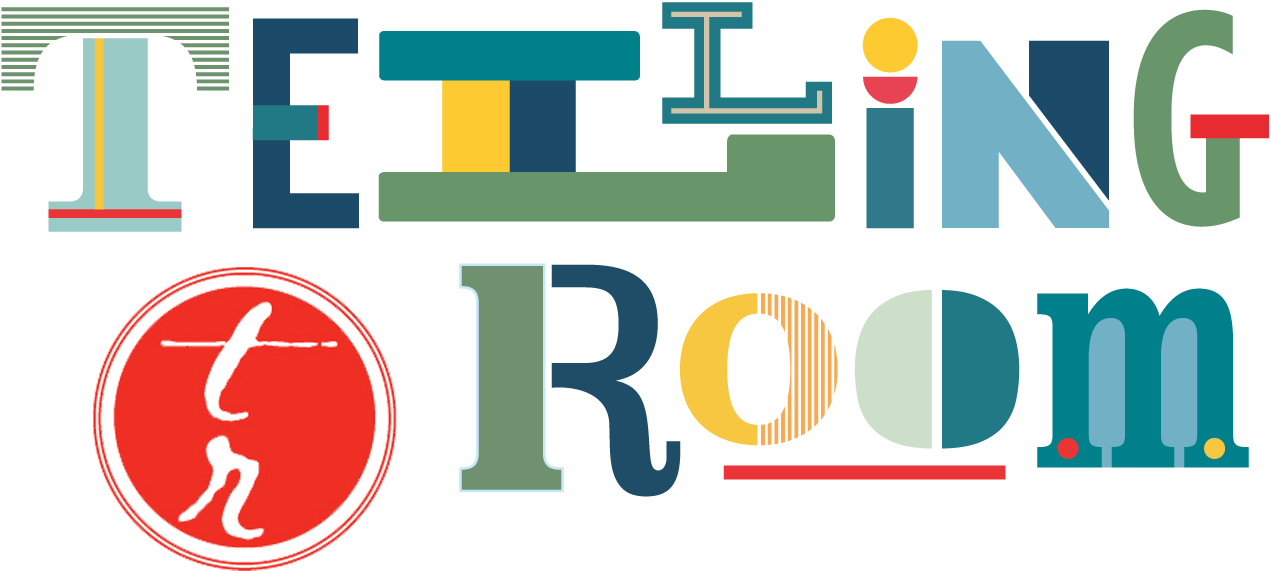“Drop of Melanin and Blood”
by Benedita Zalabantu, Telling Room Author
I.
There’s something about my brother that scares me.
He’s black and a man.
He’s a black man in a world where his skin symbolizes weapon.
He’s a black man in a place where his skin symbolizes thug.
How can he move through the world
when his own skin is a shield for protection
and a weapon for destruction?
The way black men walk in this world portrays them.
The way black men walk in this world scares them.
A colored man walks with a weapon, meaning skin.
A colored woman walks with labels that will define her,
but can these labels be erased?
Black boy, don’t speak unless you’re spoken to.
Black boy, don’t make a move.
Black boy, don’t adjust while handcuffed.
At a young age, little black boys are taught how
they should and shouldn’t act when they’re stopped by the cops.
Black boy, breathe. I want you to breathe.
Black boy, you will be treated as a problem before
they realize you’re human.
Black boy, keep your hands visible.
Black boy, be scared, but not too scared.
Black boy, you will matter.
Don’t you know a black man is born
with a practice target that can never be removed?
Don’t you know black bodies are weapons?
II.
My walk home with my little brother from
the bus stop is always interesting.
He talks about kindergarten as if it were heaven,
and I smile,
glad that I got a brother whose personality rivals my dad’s.
Sometimes we see birds, sometimes we see rain,
sometimes we see snow. Ain’t nothing but change.
But we don’t often see cops.
One day we did, and he looked up at me smiling
as if it were his first time seeing a blue-and-white car before.
“It’s a police car!” He jumped and pointed with excitement.
His round face looked at me, smiling with a missing tooth.
His little brown skin always makes me happy and I smiled.
He don’t know yet.
He is going to be seen as a threat as he grows up.
It hits me: I’m afraid of how insecure
he will have to be around them,
around those who are trained to protect us but fail to.
I’m scared he won’t be smiling at them anymore,
afraid he will have to raise his hands up saying
“Don’t shoot,”
afraid he will have to say
“I can’t breathe,”
afraid my brother will look up at the sky and ask,
“Why me?”
afraid he will have to say
“I’m unarmed, I swear.”
I am scared because I know.
I know this is never going to end.
I know there will be a lot of reasons
he won’t be able to breathe, and the cops
are one of them.
I know he’s getting ready for a war that I can’t prepare him for —
never really knowing when danger is around the corner,
never really knowing when danger is in the media.
III.
My melanin has meaning.
It is profound, dark skin
so greedy it gobbles up nouns, so tangled
look what it did to my hair,
reaching up to the sky at all angles.
To teach someone something about self-love
you got to start with yourself.
Your skin is not a dirty shirt that needs to be washed
like yesterday’s shirt.
Your skin is like hot chocolate that warms winter nights.
Like rings around tree stumps, you have a history
attached to your melanin.
Never let the glaring whiteness blind you
from the beauty you are.
Dark as the night sky,
constellations are tucked neatly underneath your bones.
You know what?
When they call you dark as the night,
tell them without you the stars wouldn’t have anything to shine for.
Perfection was not your destination,
dark girl, it was your starting point.
“Some say the blacker the berry the sweeter the juice,
I say the darker the flesh, the longer the roots.”
BENEDITA ZALABANTU was a freshman at Portland High School and was fifteen years old at the time she wrote this poem. She immigrated to Portland, Maine, from Angola. She’s a poet whose writing speaks for itself. Her poem “Drop of Melanin and Blood” is about racial bias, identity, and the experience of being a black woman in America.
This piece is being re-published as a part of our new The Voice of a Pride series. Learn more about this series here.
Want to share your response to any of our lessons or student works? There are a few options:
Visit our submissions page to submit your writing!
We are committed to providing resources, activities, and community engagement to help us all keep writing and communicating across the divide. In the coming weeks and months we’ll be providing all kinds of content on this Medium account, including: A list of shorter writing activities and write/share prompts; articles written by Telling Room staff that feature key elements of literary and language arts methodology; and a suite of Telling Room lessons curated and adapted for online classroom and at-home learning.

